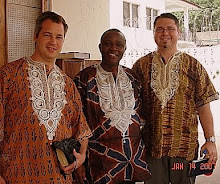“Here is a call for the endurance of the saints” (Revelation 14:12).
We all long for rest and refreshment. That’s a God-given longing that he promises to fulfill: “I will satisfy the weary soul, and every languishing soul I will replenish” (Jeremiah 31:25).
And in a very real way Jesus gives rest to “all who labor and are heavy laden” and come to him (Matthew 11:28). But in this age, it is not the complete rest.
In this age, Jesus grants us the gospel rest of ceasing the impossible labor of self-atonement for our sins (2 Corinthians 5:21). But in embracing the gospel we find ourselves also drafted into a war — a war to keep believing the gospel and a war to spread it to others. In this age we “strive to enter that [complete] rest” of the age to come (Hebrews 4:11).
And wars are exhausting — especially long ones. That’s why you are often tired. Most soldiers who experience the fierceness of combat want to get out of it. That’s why you feel urges to escape or surrender. That’s why there are times you’re tempted to give up.
But don’t give up. No, rather “take courage! Do not let your hands be weak, for your work shall be rewarded” (2 Chronicles 15:7).
Don’t give up when that familiar sin, still crouching at your door after all these years, pounces again with temptation. No temptation has overtaken you that is not common to man. God is faithful, and he will not let you be tempted beyond your ability, but with the temptation he will also provide the way of escape, that you may be able to endure it (1 Corinthians 10:13).
Don’t give up when you feel that deep soul weariness from long battles with persistent weaknesses. “My grace is sufficient for you, for my power is made perfect in weakness.” Therefore I will boast all the more gladly of my weaknesses, so that the power of Christ may rest upon me (2 Corinthians 12:8–9).
Don’t give up when your long prayed-for prayers have not yet been answered. And he told them [the parable of the persistent widow] to the effect that they ought always to pray and not lose heart (Luke 18:1).
Don’t give up when the devil’s fiery darts of doubt land and make you reel. Therefore take up the whole armor of God, that you may be able to withstand in the evil day…in all circumstances take up the shield of faith, with which you can extinguish all the flaming darts of the evil one (Ephesians 6:13,16).
Do not give up when the fragmenting effect of multiple pressures seems relentless. But as servants of God we commend ourselves in every way: by great endurance, in afflictions, hardships, calamities, beatings, imprisonments, riots, labors, sleepless nights, hunger . . . (2 Corinthians 6:4–5).
Do not give up when the field the Lord has assigned you to is hard and the harvest does not look promising: And let us not grow weary of doing good, for in due season we will reap, if we do not give up. (Galatians 6:9)
Do not give up when you labor in obscurity and you wonder how much it even matters. Your Father who sees in secret will reward you (Matthew 6:4).
Do not give up when your reputation is damaged because you are trying to be faithful to Jesus. Blessed are you when others revile you and persecute you and utter all kinds of evil against you falsely on my account (Matthew 5:11).
Do not give up when waiting on God seems endless. Even youths shall faint and be weary, and young men shall fall exhausted; but they who wait for the Lord shall renew their strength; they shall mount up with wings like eagles; they shall run and not be weary; they shall walk and not faint. (Isaiah 40:30–31)
Don’t give up when you have failed in sin. Don’t wallow. Repent (again), get your eyes off yourself and back on Jesus, get up and get back in the fight. If we confess our sins, he is faithful and just to forgive us our sins and to cleanse us from all unrighteousness (1 John 1:9); if we are faithless, he remains faithful — for he cannot deny himself (2 Timothy 2:13).
Jesus knows your works (Revelation 2:2) and he understands the war (Hebrews 12:3). “Fight the good fight of the faith” (1 Timothy 6:12). Finish the race (2 Timothy 4:7). “By your endurance you will gain your lives” (Luke 21:19).
Don’t give up.
Jon Bloom




